23 APRIL, "INTERNATIONAL BOOK DAY"
10 books on technology that you can’t miss 📖
30 June 2023
On "International Book Day", April 23 , we have compiled 10 recommended readings on software, programming, artificial intelligence,... in short, on technology for all those interested in this world. The contribution of technology in all areas of our society and the acceleration of digital transformation reflect the importance of keeping abreast of the various trends for the evolution of business.
“The pragmatic programmer”, by Hunt Andrew and Thomas David
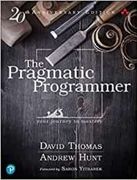
A classic that advises programmers on how to be more productive at work, improve their skills and develop habits and attitudes to ensure a professional future.
“The Pragmatic Programmer” covers topics ranging from personal responsibility and professional development to architectural techniques for keeping your code flexible and easy to adapt and reuse.
Hunt and Thomas illustrate the best practices and major pitfalls of many different aspects of software development. It is a book for both a new programmer and an experienced programmer or manager responsible for software projects.
“Modern Operating Systems” by Andrew S. Tanenbaum.
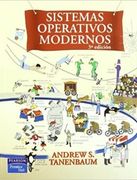
This is a classic in computer engineering schools. Tanenbaum develops the functioning of operating systems, with a major focus on Windows and Unix. Among others, he discusses computer security, multimedia operating systems and multi-processor systems; extensive coverage of Linux, UNIX and Windows 2000 as examples; etc.
Importantly, Tanenbaum inspired Linus Torvalds to create Linux with his Minix operating system.
“The Age of AI: And Our Human Future”, by Henry Kissinger, Eric Schmidt, and Daniel Huttenlocher
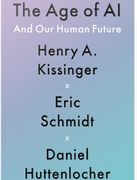
Former Google CEO Eric Schmidt, former Secretary of State Henry Kissinger, and MIT Schwarzman School of Computing Dean Daniel Huttenlocher discuss how economics, politics, security, and even knowledge are being reinvented in the age of AI. They draw on their diverse experiences as a statistician, CEO and academic to highlight the dramatic changes AI will bring, how it is transforming human society and what this technology means for all of us. AI is being used in research, medicine, education and many other fields and, in doing so, transforms the way we humans experience reality.
“Everyday Chaos: Technology, Complexity, and How We’re Thriving in a New World of Possibility” by David Weinberger.
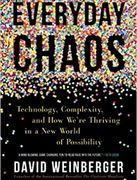
Artificial intelligence, Big Data, modern science and the Internet are revealing a fundamental truth: the world is far more complex and unpredictable than we see. Now that technology is enabling us to take advantage of all the chaos that is being revealed, our understanding of how things happen is changing, and with it, our deeper strategies for predicting, preparing and managing our world.
Facing uncertainty and accepting that we know very little enables organisations to cope with the immensity of machine-generated learning. This book can help leaders find opportunities in the chaos.
“Technology & Society: Second Edition”, by Deborah G. Johnson and Jameson M. Wetmore
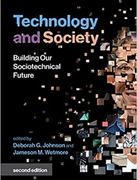
This book brings together reflections by such celebrated thinkers as Rokeya Sakhawat Hossain and Bruno Latour that focus on the interconnections of technology, society and values. Technological change does not occur in a vacuum; decisions about which technologies to develop, finance, commercialise and use involve ideas about values, as well as calculations of costs and benefits. To influence the development of technology for the better, we must first understand how technology and society are inextricably linked. Many of the texts illustrate how race and gender are intertwined with technology.
They discuss how people shape technology and how technology shapes people, with visions of the future ranging from technological utopias to cautionary tales.
“The Exponential Age: How Accelerating Technology is Transforming Business, Politics and Society”, by Azeem Azhar
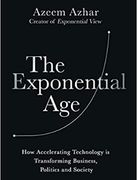
We are living through a period of unprecedented technological change, and the pace of change is only accelerating. Azeem Azhar, creator and host of the popular Exponential View newsletter and podcast, explores the widening gap between the pace of change and our ability to adapt, and offers a new framework for understanding the impact of technology on the economy, politics and the future.
“Life 3.0: Being Human in the Age of Artificial Intelligence” by Max Tegmark
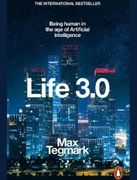
One of the books recommended by Bill Gates. Life 3.0″ analyses how artificial intelligence (AI) and its algorithms will impact on different social aspects of our lives, such as work, justice, crime and war.
Max Tegmark clarifies key concepts to understand AI and raises questions that are the order of the day such as whether machines will replace humans at work, whether AI will improve our lives or surpass us, among others. At the same time, we are advised on how we can act to increase the chances of a positive outcome, possible futures for humanity, technology and combinations thereof.
“AI 2041: Ten Visions for Our Future”, by Kai-Fu Lee
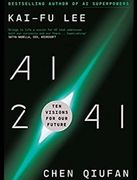
Artificial intelligence is perhaps the most important technology of our time – how will it change the world in the next 20 years? In his latest book, Kai-Fu Lee, author of the bestselling “AI Superpowers” and former head of Google China, provides an immersive look at how AI will transform aspects of our daily lives.
“Communicating with Data”, by Carl Allchin
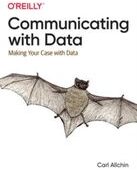
Data is a resource for driving change in an organisation, but often the people working in those organisations do not have the skills to communicate with data effectively.
With this practical book, Carl Allchin advises on how to find data sources and develop analytics. Experts in the field will learn how to visualise data and develop strong and persuasive points to convey results and conclusions appropriately. Once they have acquired the skills to work with data and interpret its meaning, experts will be able to address questions and challenges in their company’s departments.
“The Code: Silicon Valley and the Remaking of America”, by Margaret O’Mara
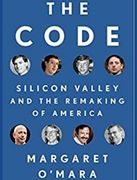
Margaret O’Mara worked in the White House of Bill Clinton and Al Gore in the early days of the commercial Internet. There, she saw first-hand how deeply intertwined Silicon Valley was with the federal government.
After nearly five years of research, O’Mara has produced the definitive history of Silicon Valley, the story of mavericks and visionaries, but also of powerful institutions that set the stage for innovation, from the Pentagon to Stanford University. It is also the story of a community that started out remarkably homogenous and elitist and stayed that way, and whose belief in its own mythology has deepened into a collective hubris that has led to astonishing triumphs as well as devastating second-order effects.
O’Mara has been on the ground with all the key tech companies and chronicles their evolution.
23 April, “International Book Day”, a bit of history…
Book Day” is celebrated in more than 100 countries around the world to pay tribute to literature and encourage reading. In Spain, it coincides with the Dia de Sant Jordi, the patron saint of Catalonia, and it is customary to give a book and a rose as a gift.
Each year, a World Book Capital is chosen by the International Federation of Library Associations and Institutions, the International Publishers’ Union and the International Booksellers’ Federation. The first one was Madrid in 2001.
Its origins:
- 1923: the writer Vicente Clavel Andrés proposed to the Official Chamber of Books of Barcelona to celebrate this festivity.
- 1926: King Alfonso XIII of Spain approved its first celebration on October 7 .
- 1988: UNESCO proclaimed “Book Day” internationally.
- 1995: the UNESCO General Conference established April 23 as “Book Day”. In Spain, however, this day had been celebrated since 1930 to pay tribute, on the date of death, to William Shakespeare (Julian calendar), to Inca Garcilaso de la Vega and, on the date of burial, to Miguel de Cervantes.

